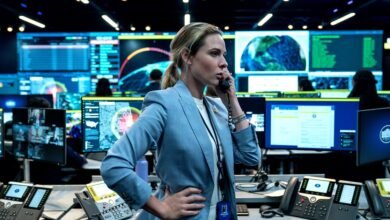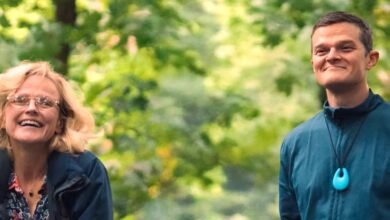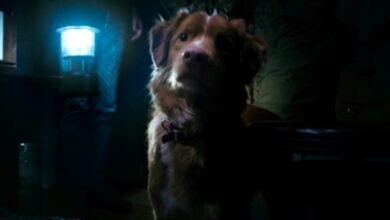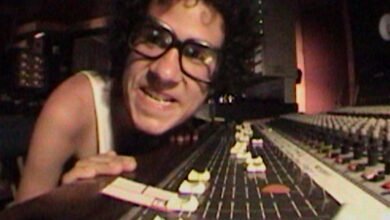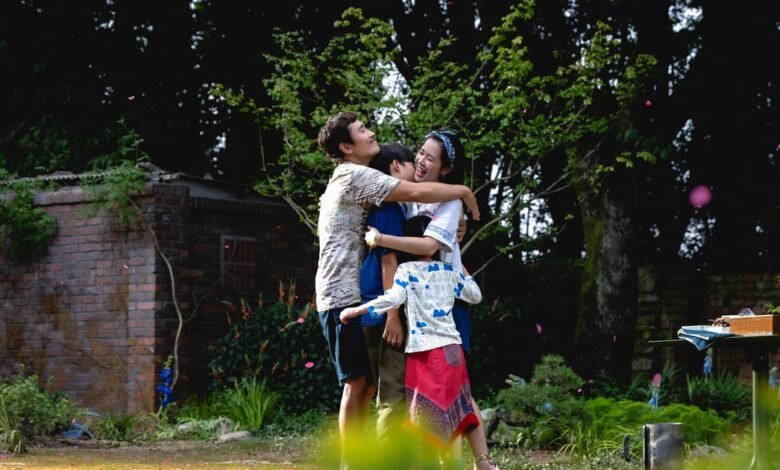

In Donald Westlake’s 1997 horror novel ‘The Ax’, a recently laid-off manager at a paper company decides to thin out the competition in the job pool by tracking down and taking out his potential competitors as he vies for a new job. Westlake’s book was written amid the corporate redundancies of 90s America; it struck a chord with Korean filmmaker Park Chan-wook, who has been slowly working out his version of the story ever since. It arrives now – as did Westlake’s novel – into a society where the value of human labour has been decreed minimal, named for the refrain of almost every character in the film moments before they do something cruel and self-serving. No Other Choice sees Director Park at his most biting and brutal, but not without emotion. As bloodthirsty and impish as this work is, there’s more to it than just rage against the machine.
Transporting the story to his native South Korea, Park casts Lee Byung-hun as family man You Man-su, who lives in a gorgeous home with his wife Miri (Son Ye-jin) their children Si-One and Ri-One, and two beautiful Golden Retrievers (Si-Two and Ri-Two). Man-su is devastated after being laid off from his paper company management role after 25 years, and despite assurances from his wife he’ll find a new job soon, 13 months later he’s stacking boxes in a warehouse, desperately interviewing for a more senior position. After a series of calamities, with house foreclosure pending, Man-su becomes truly desperate, and after becoming mildly obsessed with the cool middle manager at Moon Paper, realises the job market is simply too competitive. Wouldn’t it be easier if he thinned out the herd?
Get more Little White Lies
The problem is, Man-su isn’t as cut-throat as he fancies himself, and his murder plot isn’t particularly thought out. Cur a series of further misadventures as he schemes to take out his potential competition, in process threatening his own family, hard-worn sobriety and very humanity as he finds it becomes easier and easier to convince himself that his providence is more important than the lives of others. Parallels to Bong Joon-ho’s Parasite are so obvious that immediately following No Other Choice’s Venice première several critics cited the 2020 Best Picture winner in their reviews, but this easy comparison does threaten to undermine the specificity of both films. South Korean filmmakers with prickly senses of humour who enjoy a social satire? The headline writes itself. While the two directors are peers with shared interests and there is undoubtedly some common DNA, No Other Choice confronts erasure of our humanity as we’re anonymised and homogenised by capitalism. At the start of the film, the company Man-Su is laid off from hire a genial woman to provide an affirmations class to the sacked employees; this withering detail speaks to a world in which companies would rather assign value to the illusion of care than its actual delivery.
Director Park’s eye for expressive camerawork ensures a sense of dynamism and urgency that brings wit to the absurdity of Man-su’s situation, whether it’s a camera strapped to a dog or the comedic timing of a low-angle shot as our murderous middle-manager considers dropping a heavy plant pot on a rival to take him out. One particularly lovely (and amusing!) detail is a minor one: Si-one has a matching raincoat with the family dogs. This attention to detail and precision in No Other Choice’s visual language create a world where we understand the stakes, and although we might not share Man-su’s murderous intentions, they do make sense in a bizarre way. That the handsome but often pathetic Man-su is such a compelling character is a credit to both Director Park and the wonderful Lee Byung-hun, whose performance is a masterclass in the tension between comedy and tragedy. Moments of pathos brush up against self-entitlement and self-aggrandising, and while it would be easy to dismiss Man-su as a middle-class misery who refuses to do work he deems beneath him, Director Park puts effort into explaining why Man-su feels this way, and how generations of toiling under capitalism create self-serving individuals.
Even as the death roll of capitalism continues to clutch Hollywood in its jaws, No Other Choice proves in the hands of a master there’s still fertile ground to be found, and his biting, incendiary dramedy calls into question how much we’re willing to accept – and how far we’re willing to go – in the name of preserving our own comfort.

